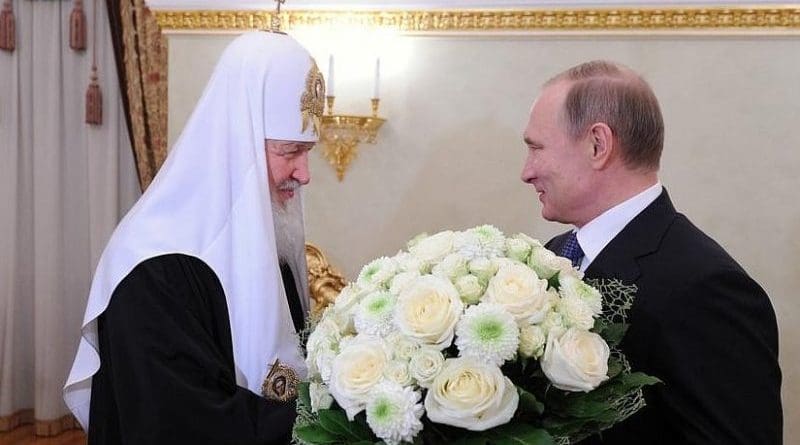Rise Of Orthodox Russian Nationalism Will Provoke Its Nemesis In Muslim Nationalism Among Non-Russians – OpEd
By Paul Goble
“The growth of radicalism and the strengthening of ‘Orthodox nationalism’ will stimulate the development of ‘ethnic projects,’ including Chechen, Circassian, Tatar, Yakut and others” and lead to the radicalization of political Islam in Russia, Denis Sokolov writes in a new report for the Free Russia Foundation (idelreal.org/a/29984776.html).
Sokolov, a specialist on ethnic conflicts in the Caucasus who is now a resident scholar at CSIS in Washington, is the latest in a long line of analysts who have viewed ethnic Russian nationalism as dangerous precisely because of the countervailing movements its appearance will inevitably provoke among non-Russians.
That danger was fully understood by Soviet leaders who, with rare exceptions as in the case of Stalin during and immediately after World War II, worked hard to rein in Russian nationalism lest it lead to the rise of non-Russian nationalist movements that might have threatened the territorial integrity of the country.
But Vladimir Putin, apparently convinced that with the demise of the USSR, the percentage of ethnic Russians in the population is so much greater – more than 75 percent now rather than just over 50 percent at the end of Soviet times – and the share of non-Russians that much less, he need not be so careful, has pushed Russian Orthodox nationalism.
While the share of non-Russians is less, Putin’s use of Orthodoxy in this regard is dangerous to the regime not only with regard to non-Russians and especially Muslims, who constitute the overwhelming share of the non-Russians, but also to a large share of irreligious Russians who want a secular state.
Consequently, the Kremlin leader is playing with fire; and every step he makes in the direction of Orthodox Russian nationalism is another in the direction of the disintegration of the Russian Federation, something he has built his presidential career on having successfully blocked for all time.
Sokolov’s paper has not yet appeared on line. What appears here is based on the summary offered by Ramazan Alpaut of Radio Liberty’s IdelReal portal, who further reports that, according to the Russian analyst, “the final form of the radicalization of Vladislav Surkov’s ‘sovereign democracy’ may become ‘something like Orthodox nationalism.”
That notion, he says, will inevitably “be directed against ethnic and pro-Western projects in the post-Soviet states and certain Russian regions.”


Solotov is a true idiot. Of course Orthodox nationalism is the right way forward for national unity. The 25% non-Orthodox will shrink and the people will be more united as Orthodoxy spreads through the population. Strength in diversity is a myth, in the same way multiculturalism is now a dirty word largely because multiculturalism really only benefits Islam, which hides behind the skirts of other cultures.